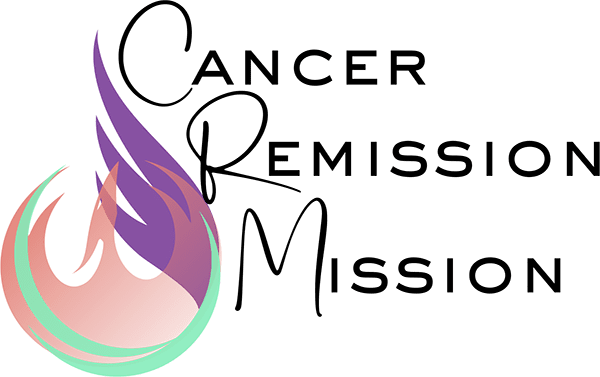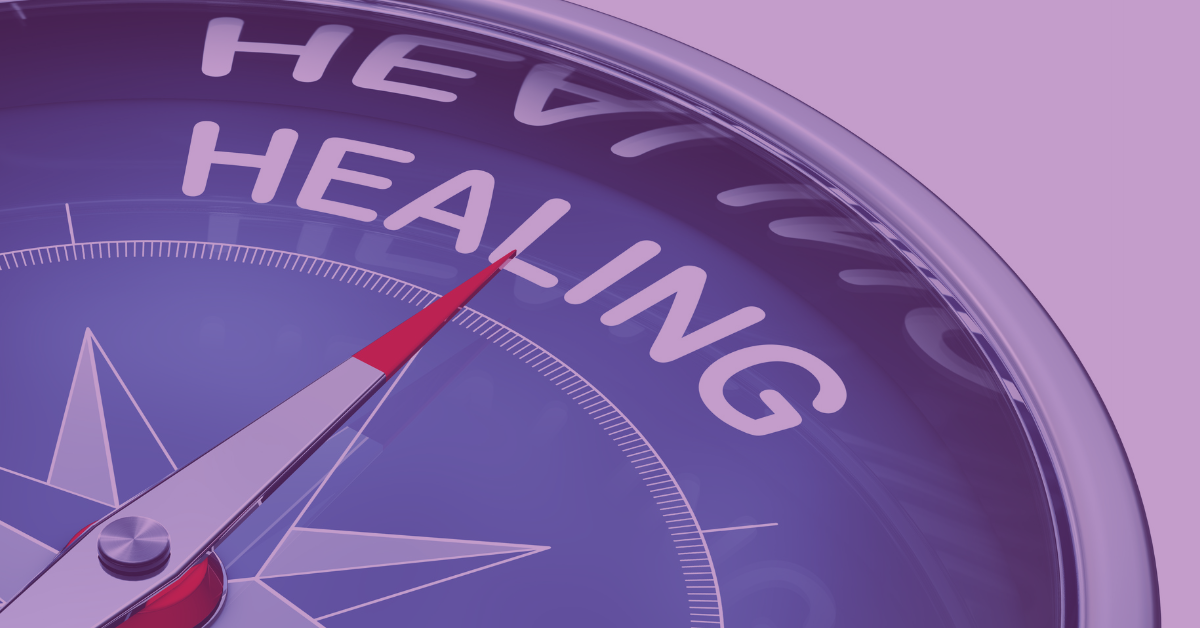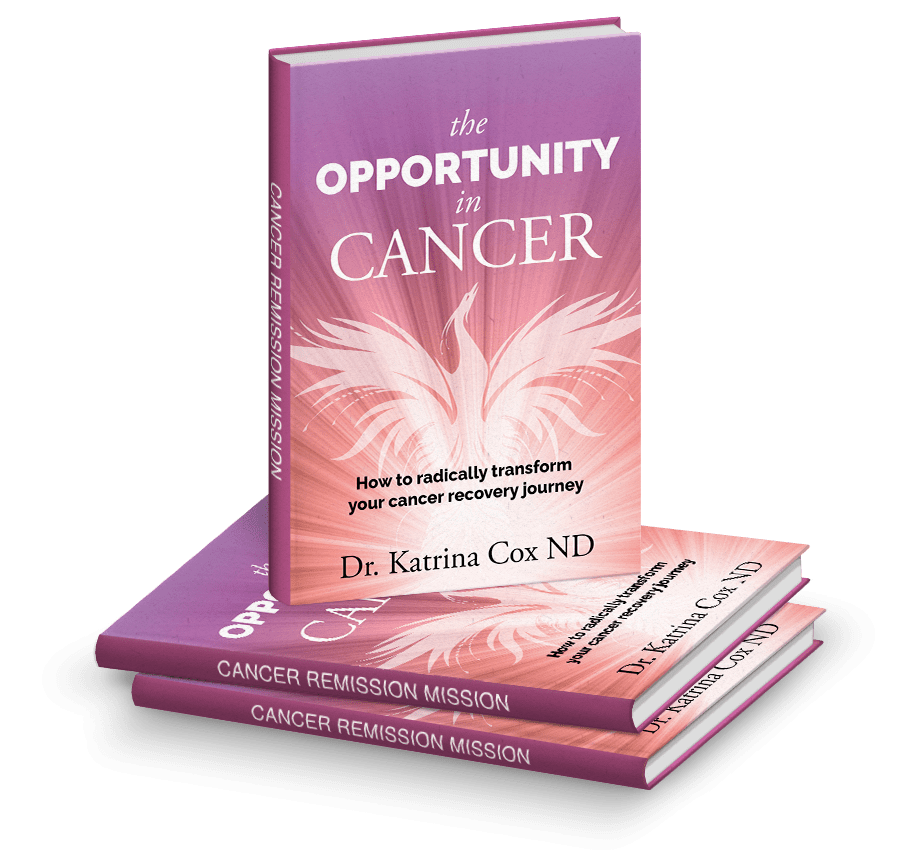In my work, I often talk about achieving a “thriving state”. The most important thing about thriving is unraveling our emotional trauma. Trauma is a part of the human condition. We have to normalize the fact that every one of us from the moment that we are born will have experiences that cause trauma. We also need to recognize that trauma, in the form of Cancer-Related Post-Traumatic Stress, is common, and something we need to acknowledge and address.
When we are talking about emotional trauma, we are referring to an emotional response to a challenging or dangerous event. This emotional response is wired into our nervous system, and when we encounter things that remind us of the original event, otherwise known as “triggers”, it takes us right back to the emotional response we first experienced.
This trauma response can happen months, years or even decades after the original event. It is how our body and brain keep us safe; we learned that a certain situation caused us to feel stress and danger, so subconsciously we are now looking out for similar situations, or those “triggers”, to protect us from going through the same thing again. The reality is that this is a faulty internal system. Often it holds us back, rather than protects us from potential harm.
The cancer diagnosis, and other events during the cancer treatment journey, can result in emotional trauma. In fact, there is a condition called post-treatment syndrome that specifically relates to this trauma response from having had cancer.
What is Cancer-Related Post-Traumatic Stress?
 My first experience with post-treatment syndrome, or cancer-related post-traumatic stress, was with my father. He was diagnosed first before my mother was, and went through fairly intensive cancer treatment. By the time my mom was diagnosed with cancer, my dad went from being a patient to a caregiver. He was now holding space for her as a loved one while she went through diagnosis and treatment.
My first experience with post-treatment syndrome, or cancer-related post-traumatic stress, was with my father. He was diagnosed first before my mother was, and went through fairly intensive cancer treatment. By the time my mom was diagnosed with cancer, my dad went from being a patient to a caregiver. He was now holding space for her as a loved one while she went through diagnosis and treatment.
The profound impact of his journey became apparent one day, walking into the cancer treatment center with my mom. His mood shifted and he suddenly became overwhelmed. I realized quickly that entering the treatment center was a trigger for him. When he was feeling his most vulnerable and sick was when he was walking through those very same doors not long before, during his own course of treatment. Now he was walking through them again, but this time trying to be strong for my mom as she was going through cancer. That trigger, entering the treatment center, caused him to feel stress and anxiety. It was a clear indication that he needed to do some work to release his past trauma, specifically around his diagnosis and treatment.
How to Work Through Our Trauma
 A key step in the process of healing is to discover and understand our triggers. That involves recognizing and acknowledging your triggers. Triggers can be places, smells, people, sounds, or even foods. The trauma of the disease and the treatment can have many possible triggers, as the journey and experience is so complex. We relive the emotions of the past situation when we encounter these triggers. Recognizing our triggers is the first step to healing our trauma.
A key step in the process of healing is to discover and understand our triggers. That involves recognizing and acknowledging your triggers. Triggers can be places, smells, people, sounds, or even foods. The trauma of the disease and the treatment can have many possible triggers, as the journey and experience is so complex. We relive the emotions of the past situation when we encounter these triggers. Recognizing our triggers is the first step to healing our trauma.
The second step is to start to create awareness of what you are feeling. Ask yourself…
Where do we feel this response to this trigger?
Do we feel it in our bones?
Do we feel it in our body physically?
Do we feel it in our mind and we’re ruminating on thoughts?
Where is it that we are experiencing this trigger and trauma?
Then after we recognize it, and create awareness of the experience, then we have to work on releasing it. This is when we free ourselves; we actually eliminate it.
This is a process where I get patients to consider doing something creative. I hear you saying, “But I don’t draw or I don’t know how to do music.” Creativity has nothing to do with what you produce as part of your creative activity, but rather the emotional byproduct. It could simply just be doodling on a sheet of paper with colorful pens. It could be simply writing a story or journaling, listening to music or dancing. The process of being creative helps to establish new, positive connections in our brain that can help us process our emotions and release the triggers. Creativity allows us to reconnect with ourselves and who we are, rather than our experiences.
Creativity in Action
 One of my favorite stories was when I had a patient who was in a palliative state (end of life) of cancer and she was starting to figure out that she wanted to thrive and not just survive. I said to her, “We have to deal with the emotions. Let’s do something creative.” She said to me, “I’m not a creative person.” I asked her what she enjoyed doing in her spare time, as a hobby. She told me that she loved to rebuild motorcycles. With the support of some of her friends, we were able to organize a project to rebuild a motorcycle that she could be involved in.
One of my favorite stories was when I had a patient who was in a palliative state (end of life) of cancer and she was starting to figure out that she wanted to thrive and not just survive. I said to her, “We have to deal with the emotions. Let’s do something creative.” She said to me, “I’m not a creative person.” I asked her what she enjoyed doing in her spare time, as a hobby. She told me that she loved to rebuild motorcycles. With the support of some of her friends, we were able to organize a project to rebuild a motorcycle that she could be involved in.
For her, every moment of spending time rebuilding a motorcycle tapped into her unique creativity. We may not think of building a motorcycle as a creative process because it seems, on the surface, to be more of a mechanical task, but that is a perfect example of her being able to find her own creative outlet so she could process things. Let me tell you, after discovering how to use her creativity in this way, she was in a thriving state every day for the rest of her life.
Creativity allows us to reconnect with ourselves, and release the emotions tied to those past experiences and triggers. The results of the process are not typically immediate. For most, creative activities used repeatedly and consistently have the most transformative results. Engaging in this work in order to recover and to get to thriving can be rewarding, in so many different ways.
Trauma is part of that human journey, not just for those with cancer. Whether it’s a car accident, the death of a loved one or a health challenge, most of us do not get out of life without some form of trauma. Unfortunately, the response we have to that trauma can get in the way of us living fully and enjoying every experience. That’s why healing trauma is at the core of a thriving life. When we heal and release our past trauma, it opens the door to experience so much more!
If you are struggling with intense emotional responses to things that remind you of your cancer experiences, or you think you may struggle with Post-Cancer Traumatic Stress, having the right support is important. Reach out for more information about how we can work together.
In my work, I often talk about achieving a “thriving state”. The most important thing about thriving is unraveling our emotional trauma. Trauma is a part of the human condition. We have to normalize the fact that every one of us from the moment that we are born will have experiences that cause trauma. We also need to recognize that trauma, in the form of Cancer-Related Post-Traumatic Stress, is common, and something we need to acknowledge and address.
When we are talking about emotional trauma, we are referring to an emotional response to a challenging or dangerous event. This emotional response is wired into our nervous system, and when we encounter things that remind us of the original event, otherwise known as “triggers”, it takes us right back to the emotional response we first experienced.
This trauma response can happen months, years or even decades after the original event. It is how our body and brain keep us safe; we learned that a certain situation caused us to feel stress and danger, so subconsciously we are now looking out for similar situations, or those “triggers”, to protect us from going through the same thing again. The reality is that this is a faulty internal system. Often it holds us back, rather than protects us from potential harm.
The cancer diagnosis, and other events during the cancer treatment journey, can result in emotional trauma. In fact, there is a condition called post-treatment syndrome that specifically relates to this trauma response from having had cancer.
What is Cancer-Related Post-Traumatic Stress?
 My first experience with post-treatment syndrome, or cancer-related post-traumatic stress, was with my father. He was diagnosed first before my mother was, and went through fairly intensive cancer treatment. By the time my mom was diagnosed with cancer, my dad went from being a patient to a caregiver. He was now holding space for her as a loved one while she went through diagnosis and treatment.
My first experience with post-treatment syndrome, or cancer-related post-traumatic stress, was with my father. He was diagnosed first before my mother was, and went through fairly intensive cancer treatment. By the time my mom was diagnosed with cancer, my dad went from being a patient to a caregiver. He was now holding space for her as a loved one while she went through diagnosis and treatment.
The profound impact of his journey became apparent one day, walking into the cancer treatment center with my mom. His mood shifted and he suddenly became overwhelmed. I realized quickly that entering the treatment center was a trigger for him. When he was feeling his most vulnerable and sick was when he was walking through those very same doors not long before, during his own course of treatment. Now he was walking through them again, but this time trying to be strong for my mom as she was going through cancer. That trigger, entering the treatment center, caused him to feel stress and anxiety. It was a clear indication that he needed to do some work to release his past trauma, specifically around his diagnosis and treatment.
How to Work Through Our Trauma
 A key step in the process of healing is to discover and understand our triggers. That involves recognizing and acknowledging your triggers. Triggers can be places, smells, people, sounds, or even foods. The trauma of the disease and the treatment can have many possible triggers, as the journey and experience is so complex. We relive the emotions of the past situation when we encounter these triggers. Recognizing our triggers is the first step to healing our trauma.
A key step in the process of healing is to discover and understand our triggers. That involves recognizing and acknowledging your triggers. Triggers can be places, smells, people, sounds, or even foods. The trauma of the disease and the treatment can have many possible triggers, as the journey and experience is so complex. We relive the emotions of the past situation when we encounter these triggers. Recognizing our triggers is the first step to healing our trauma.
The second step is to start to create awareness of what you are feeling. Ask yourself…
Where do we feel this response to this trigger?
Do we feel it in our bones?
Do we feel it in our body physically?
Do we feel it in our mind and we’re ruminating on thoughts?
Where is it that we are experiencing this trigger and trauma?
Then after we recognize it, and create awareness of the experience, then we have to work on releasing it. This is when we free ourselves; we actually eliminate it.
This is a process where I get patients to consider doing something creative. I hear you saying, “But I don’t draw or I don’t know how to do music.” Creativity has nothing to do with what you produce as part of your creative activity, but rather the emotional byproduct. It could simply just be doodling on a sheet of paper with colorful pens. It could be simply writing a story or journaling, listening to music or dancing. The process of being creative helps to establish new, positive connections in our brain that can help us process our emotions and release the triggers. Creativity allows us to reconnect with ourselves and who we are, rather than our experiences.
Creativity in Action
 One of my favorite stories was when I had a patient who was in a palliative state (end of life) of cancer and she was starting to figure out that she wanted to thrive and not just survive. I said to her, “We have to deal with the emotions. Let’s do something creative.” She said to me, “I’m not a creative person.” I asked her what she enjoyed doing in her spare time, as a hobby. She told me that she loved to rebuild motorcycles. With the support of some of her friends, we were able to organize a project to rebuild a motorcycle that she could be involved in.
One of my favorite stories was when I had a patient who was in a palliative state (end of life) of cancer and she was starting to figure out that she wanted to thrive and not just survive. I said to her, “We have to deal with the emotions. Let’s do something creative.” She said to me, “I’m not a creative person.” I asked her what she enjoyed doing in her spare time, as a hobby. She told me that she loved to rebuild motorcycles. With the support of some of her friends, we were able to organize a project to rebuild a motorcycle that she could be involved in.
For her, every moment of spending time rebuilding a motorcycle tapped into her unique creativity. We may not think of building a motorcycle as a creative process because it seems, on the surface, to be more of a mechanical task, but that is a perfect example of her being able to find her own creative outlet so she could process things. Let me tell you, after discovering how to use her creativity in this way, she was in a thriving state every day for the rest of her life.
Creativity allows us to reconnect with ourselves, and release the emotions tied to those past experiences and triggers. The results of the process are not typically immediate. For most, creative activities used repeatedly and consistently have the most transformative results. Engaging in this work in order to recover and to get to thriving can be rewarding, in so many different ways.
Trauma is part of that human journey, not just for those with cancer. Whether it’s a car accident, the death of a loved one or a health challenge, most of us do not get out of life without some form of trauma. Unfortunately, the response we have to that trauma can get in the way of us living fully and enjoying every experience. That’s why healing trauma is at the core of a thriving life. When we heal and release our past trauma, it opens the door to experience so much more!
If you are struggling with intense emotional responses to things that remind you of your cancer experiences, or you think you may struggle with Post-Cancer Traumatic Stress, having the right support is important. Reach out for more information about how we can work together.




